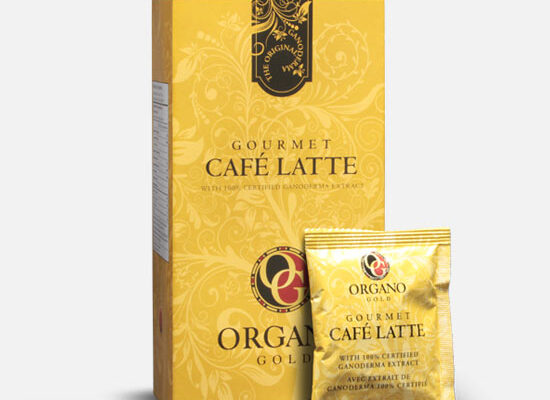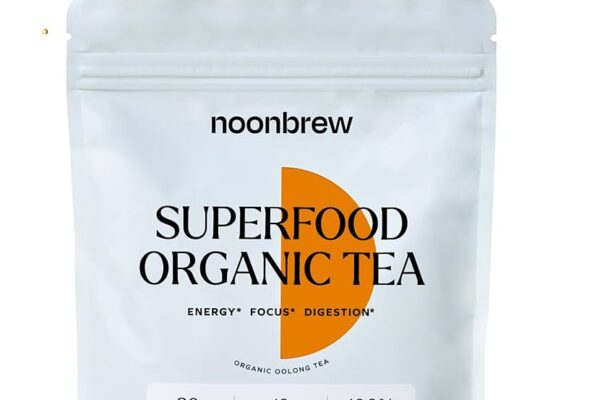Blog
What Does Organic Coffee Mean?

People concerned with their health and the environment often opt for organic products. Coffee certified as organic is grown without chemical fertilizers or sprays, thus free from harmful chemicals while offering additional antioxidants than its conventional counterpart.
Organic farms tend to use shade-grown techniques that promote ecosystem preservation and prevent soil erosion, while having a buffer zone between their fields and any non-organic crops to minimize chemical contamination.
It’s grown without harmful chemicals
Recently, organic coffee sales have seen significant growth due to growing consumer awareness about harmful chemicals. Organic farming methods do not use synthetic fertilizers, pesticides, or sewage sludge in their production process – instead using methods such as crop rotation and composting for soil health promotion and pest prevention. Furthermore, no chemical pre-harvest treatments leave harmful residues behind on products produced organically.
Organic coffee provides many environmental and health advantages, including not containing ochratoxin A toxins found in many conventionally-grown beans that could cause serious liver and kidney issues if consumed, such as liver damage or even failure. With proper roasting and wet processing techniques however, these toxins can be completely eliminated. Organic coffee also avoids pesticides and synthetic fertilizers which seep into water sources and harm ecosystems locally.
Organic coffee farming practices often occur under shade trees, which help protect the environment while keeping unique ecosystems alive. Furthermore, those involved with producing organic coffee utilize improved land management practices that reduce water usage and pollution during postharvest handling processes – an increasingly popular practice in developing nations where they help sustain rural livelihoods.
Coffee is an excellent source of antioxidants and may reduce your risk for diabetes and stroke, not to mention providing essential vitamins and minerals. Unfortunately, however, its health benefits can often be lost when grown using chemicals; thus it is recommended to opt for organically-grown coffee whenever possible.
As purchasing organic coffee is often associated with ethical production practices, purchasing fair trade certified organic coffee from a certified source is ideal. This ensures that farmers receive fair wages while producing products ethically. Since certification can be difficult for small farms, some opt to purchase direct trade coffee as it cuts out middlemen altogether and allows buyers to directly deal with farmers.
Coffee made from organically-grown coffee is one of the easiest and simplest ways you can have an impactful effect on our world. Although this might seem like just a minor step, all significant change starts from one person and this is how you can start to make an impactful statement: by purchasing and demanding organically grown coffee.
It’s grown under shade
Organic coffee farms typically operate under the shade of dense forests, helping to conserve biodiversity, maintain soil fertility and support local ecosystems while offering protection to farmers who grow it and allowing them to earn higher prices for their product. Furthermore, these organic farms tend to be more resilient against changing weather patterns and can better adapt to climate change than their conventional counterparts.
Conventionally grown coffee is often treated with pesticides and fertilizers to accelerate its growth, with full sunlight providing maximum exposure for plantings. But these chemicals can harm both the environment and humans who consume their crop; wind currents carry pesticides to nearby crops or water supplies or run off into lakes and rivers, leaving harmful traces behind that can eventually harm organic farms as well as all who reside near them. Organic farming techniques use no such chemicals – protecting both planet and people living near coffee farms!
Organic certification requires an exhaustive and exhaustive audit of every aspect of a farm, as regulated by the United States Department of Agriculture (USDA), which sets stringent regulations on organic products – this includes how seeds are utilized, what fertilizers and chemicals are utilized during processing, as well as whether any contaminants exist that might compromise its integrity. Organic certification ensures that each product adheres to these stringent standards from seed to cup.
Organic coffee offers numerous health advantages over its nonorganic counterpart, including being free from chemical residue that could harm your wellbeing. Furthermore, organic varieties contain magnesium, potassium, niacin and B vitamins while boasting less acidity compared to non-organically grown coffee varieties. But perhaps its greatest appeal lies in supporting sustainable farming practices and protecting the environment – something conventional coffee cultivation cannot match!
Conventionally-grown coffee is often treated with various chemicals such as insecticides and herbicides that wash into local waterways and soil, posing health risks to wildlife as well as humans. Coffee is among the world’s most heavily sprayed crops, even during roasting when some chemicals may have burned off; still leaving an impactful chemical residue that you are likely ingesting with your morning cup of joe. With increasing consumer health awareness it’s increasingly important to choose organic coffee.
It’s grown in a natural way
Organic coffee farming uses no synthetic chemicals and promotes environmental sustainability by encouraging healthy soil and ecosystems. Furthermore, many organic farms implement fair trade principles which enable their farmers to earn a living wage while supporting their families.
One of the primary benefits of organic coffee for consumers is that it helps strengthen their immune system. This is due to being free from pesticides and other elements which could weaken natural defenses within their bodies, while antioxidants present can bolster defenses against diseases and infections.
Organic coffee offers many advantages when grown shade-grown, which means farmers preserve native trees instead of cutting them down for farming. The shade from these trees protects coffee plants from sun exposure while simultaneously helping prevent erosion and soil degradation, providing habitats for birds and insects that help control pests, as well as helping reduce erosion.
Organic farms also utilize more natural methods of fertilizing their soil and controlling pests, such as using worm castings, compost, or manure to nourish and repel insects – methods which are much safer for farmers than chemical-based pesticides and herbicides.
Organic farming techniques help prevent pollution of both the environment and water supplies, and require a buffer zone between organic crop fields and conventional ones. To be certified as organic, coffee must have been grown on land that has not been exposed to synthetic fertilizers or pesticides for at least three years prior to production.
Organic coffee farming is not only better for the environment, but it is also healthier for farmers. Conventional farming often exposes farmers to toxic chemicals while organic methods use natural pesticides and weed killers that prevent pest infestation and maintain soil health – helping farmers reduce exposure to dangerous toxins while living longer lives.
Organic coffee’s premium price can also provide benefits to small-scale farmers in developing nations, providing a steady source of income while giving more opportunities for business expansion. Many of these farmers live in areas with higher costs of living; organic coffee’s premium price allows them to meet ends meets.
It’s grown in a sustainable way
Organic farming practices for coffee farming are significantly better for the environment than their conventional counterparts, since their soil retains more nutrients and thus requires fewer artificial fertilizers; on the contrary, conventional farms employ chemicals which are much more detrimental to our planet’s wellbeing.
Organic coffee production ensures no synthetic chemicals reach the beans, and that no unnatural contaminants are transferred during storage, roasting and packaging processes. Furthermore, this approach helps minimize waste produced during these steps; any excess materials can be recycled or composted as part of future crop cultivation efforts. Moreover, its rich soil also supports healthy ecosystems, further contributing to environmental sustainability.
Organic coffee offers several health advantages that make it a smart choice for consumers, aside from being good for the planet. For instance, its abundance of antioxidants protects the body against free radicals while helping reduce stress levels; its natural compounds enhance immune functions; while its lower acidic levels may provide relief to stomach ulcer sufferers.
Organic coffee production is also much safer for its growers. Conventional farms can rely heavily on synthetic pesticides that are harmful to human and animal health; organic farms use only natural fertilizers like coffee pulp, chicken manure or compost instead, which avoid harmful synthetic pesticides which have their own risks to human and animal health.
Organic coffee farmers typically employ environmentally-friendly packaging such as recyclable or biodegradable cups and bags, invest in renewable energy resources, practice sustainable practices, provide customers with more information regarding the source of their product, as well as provide customers with detailed origin information.
Organic farms are more resilient against climate change. Their shaded areas and forests help shield crops from extreme weather conditions while their natural biodiversity helps control pests naturally, without using chemical pesticides.






